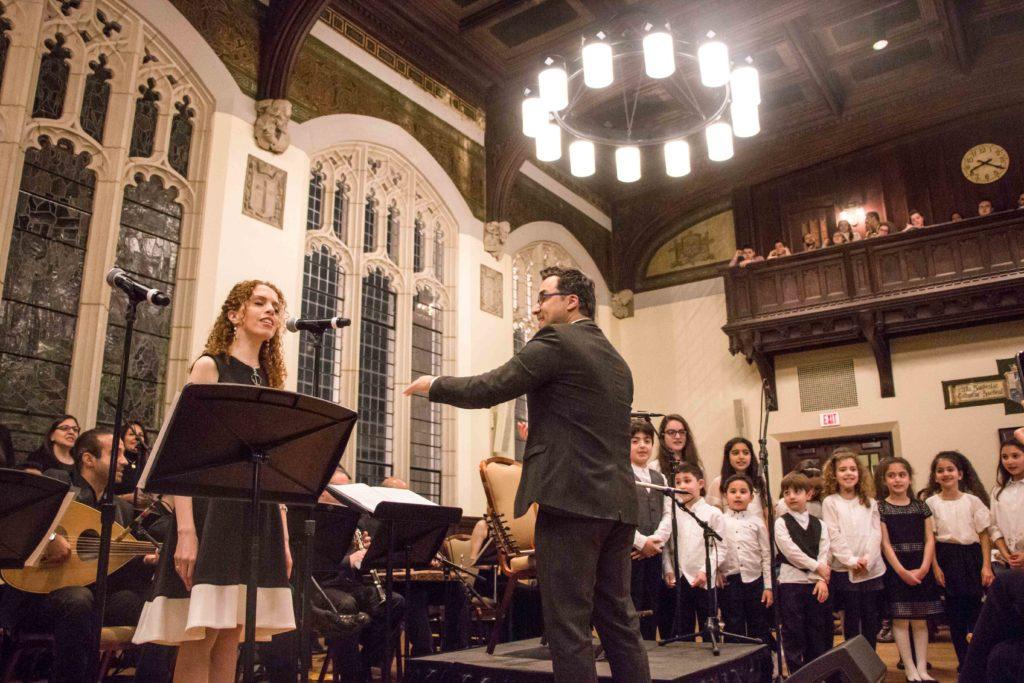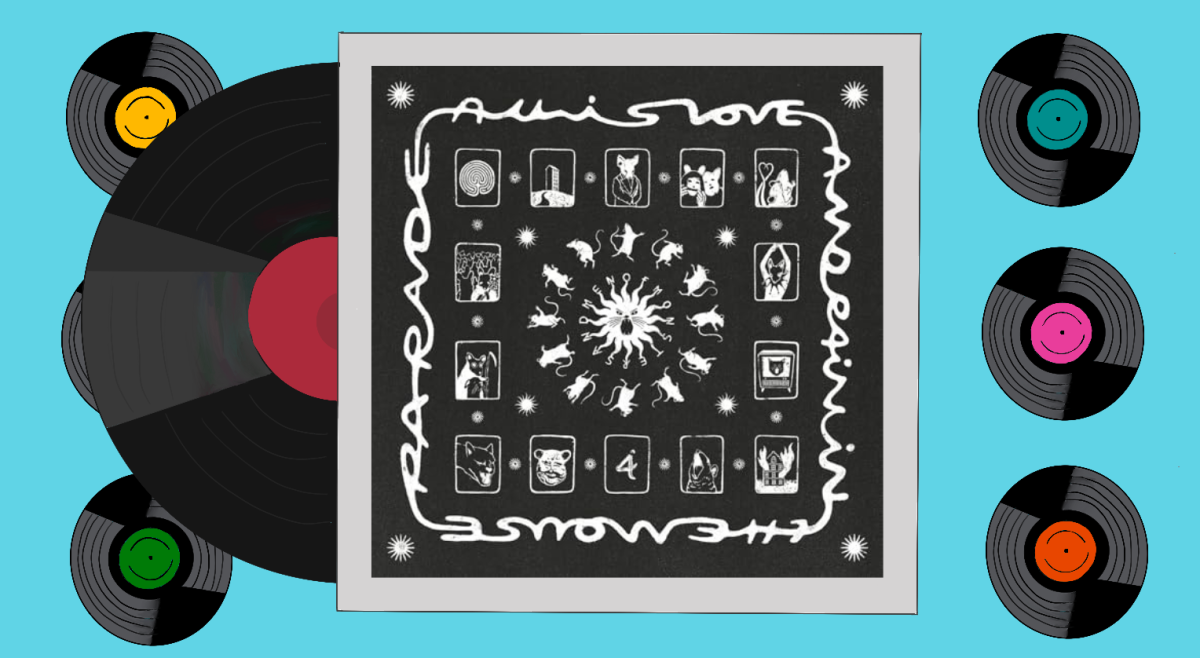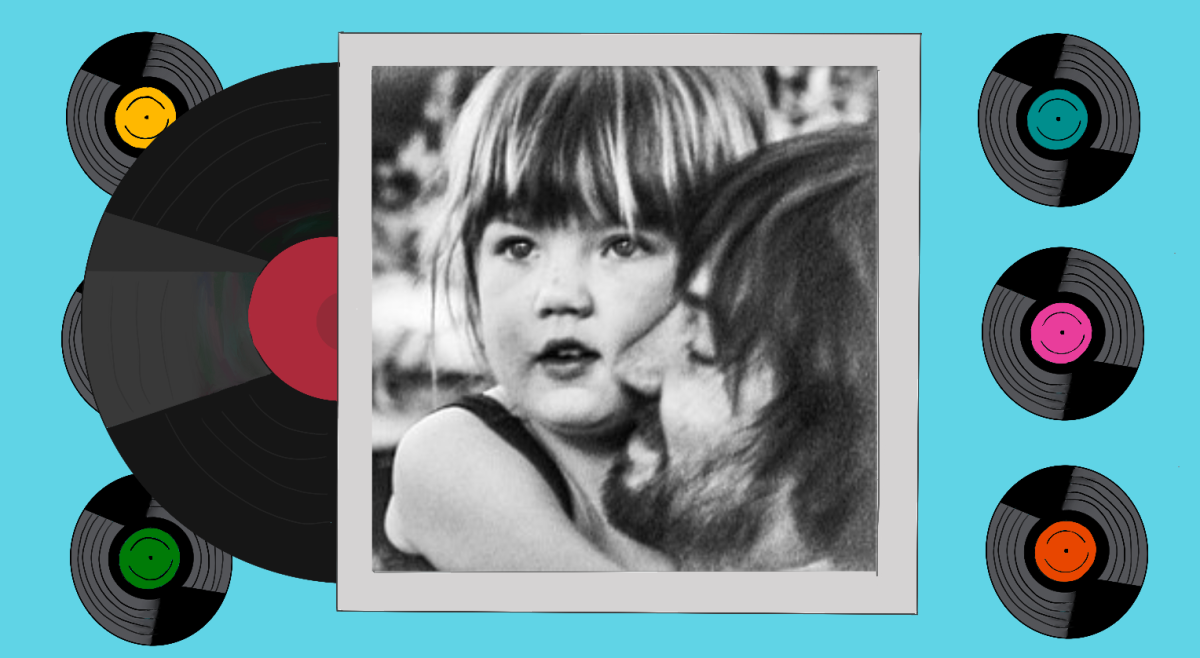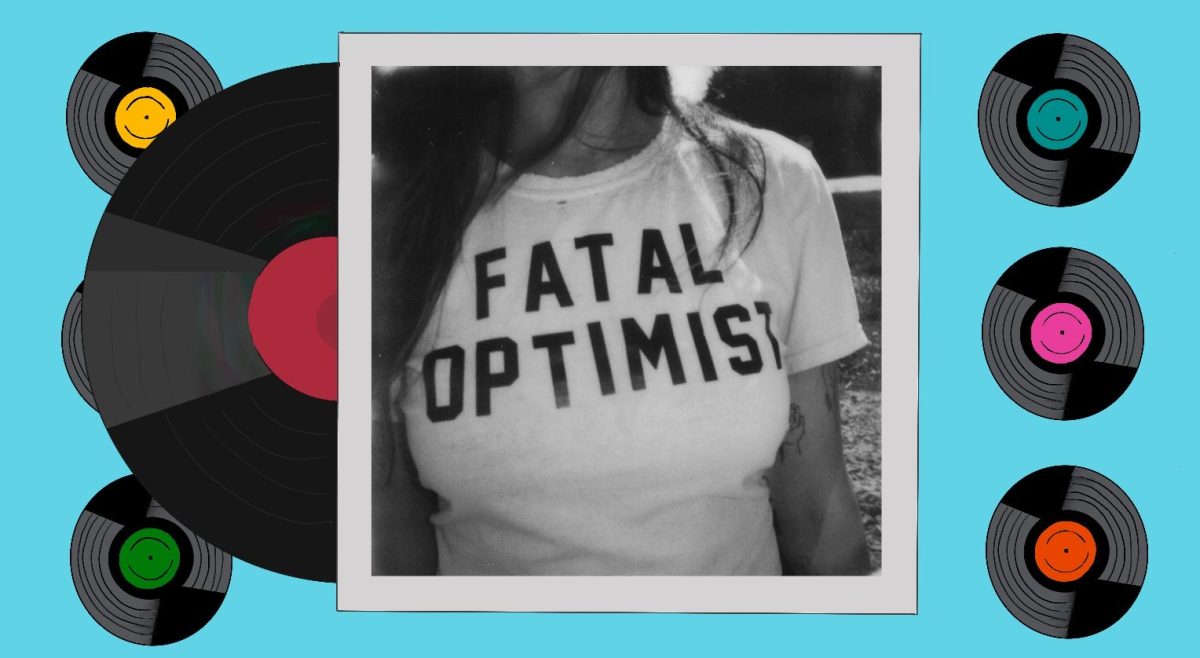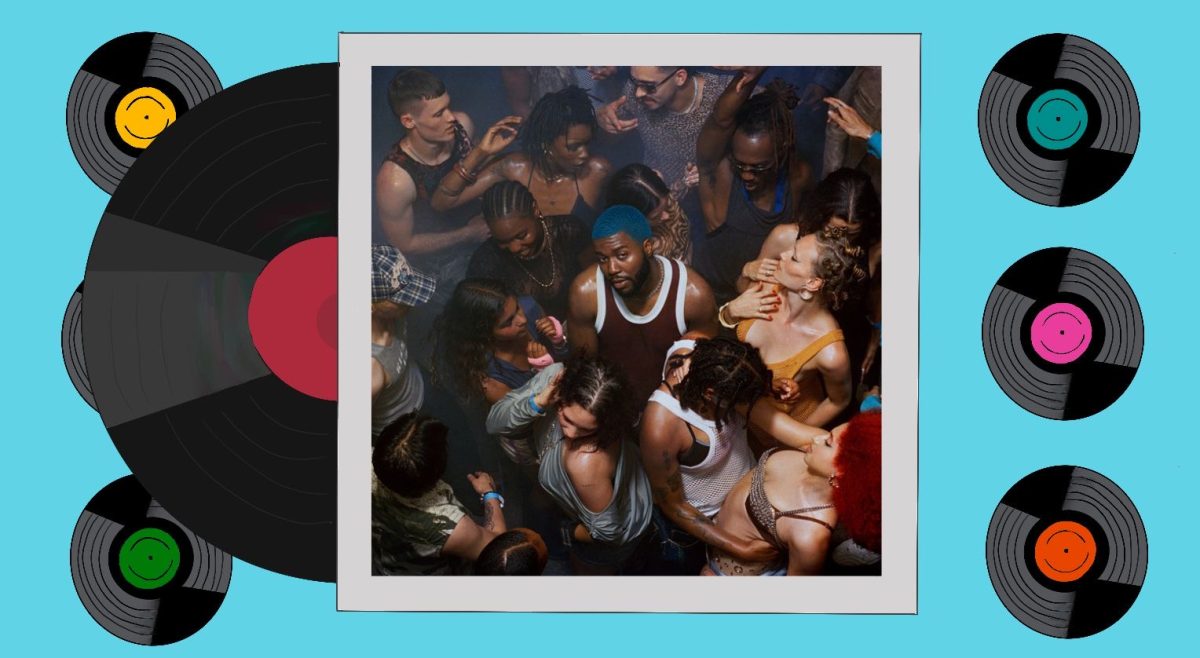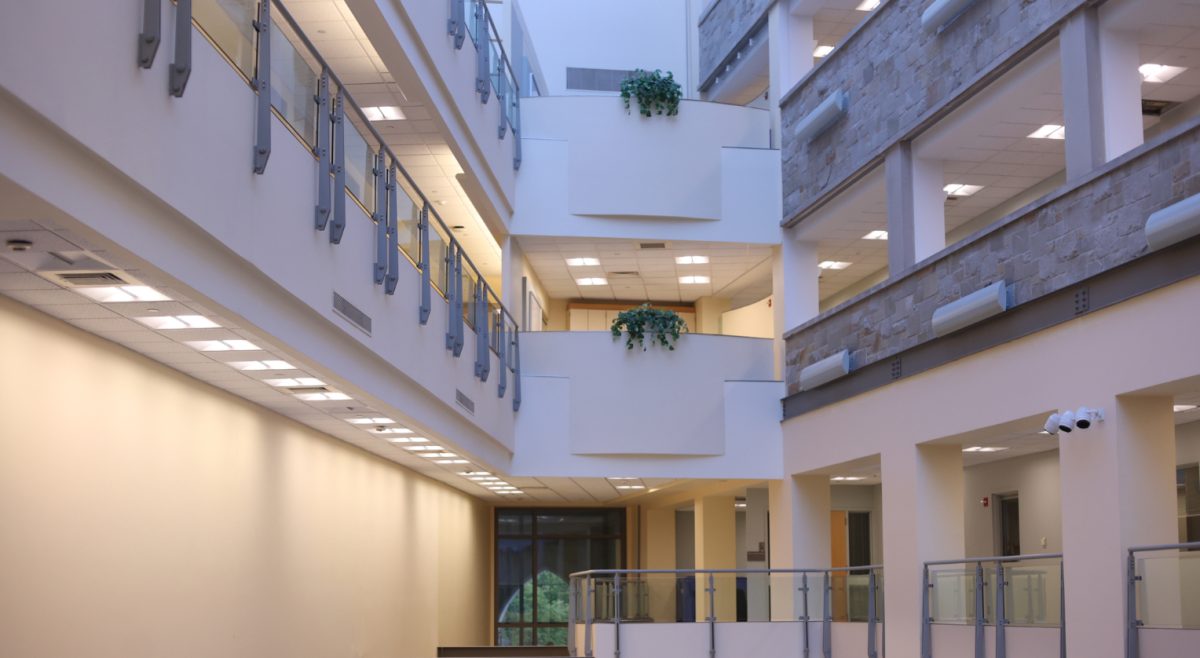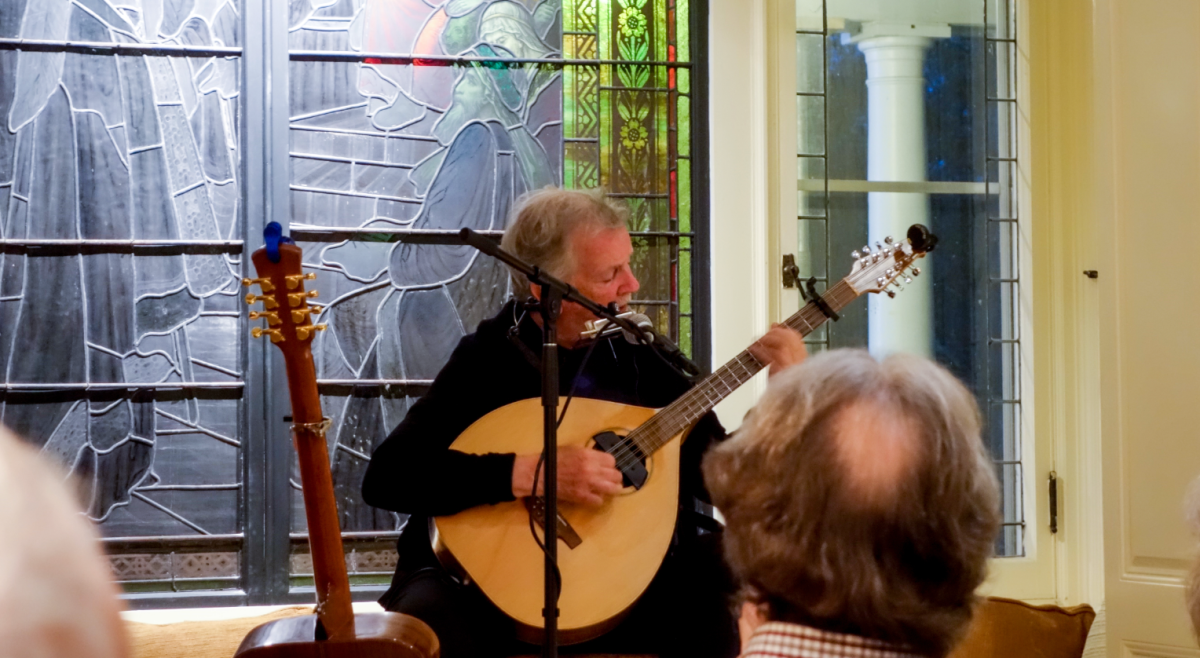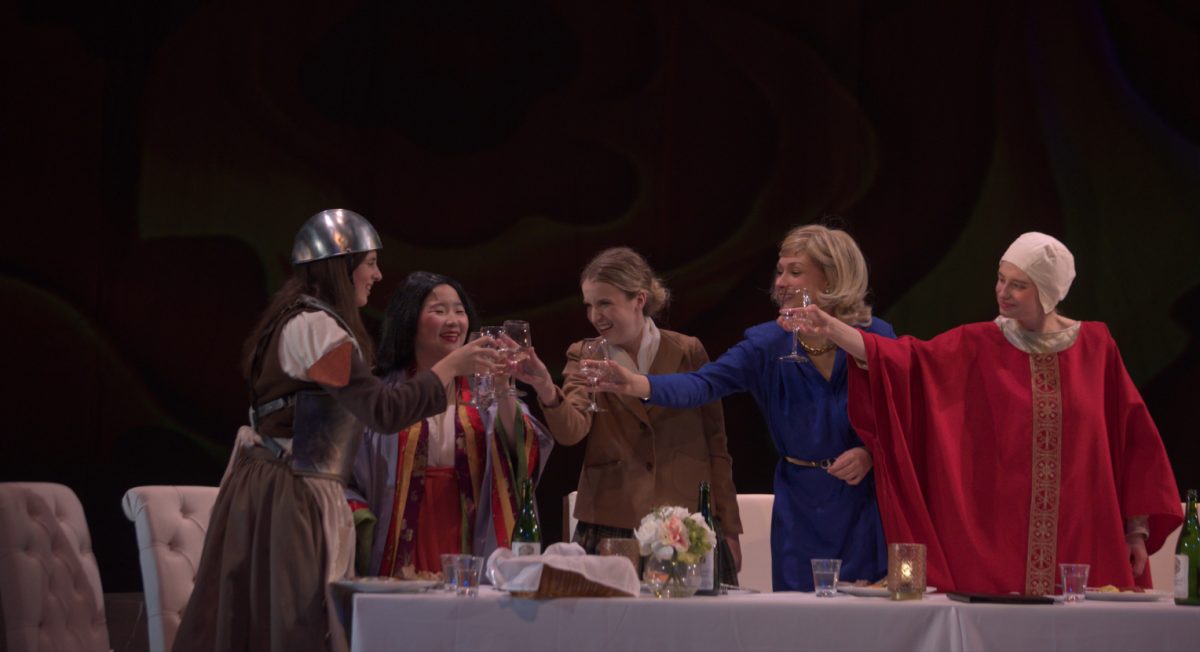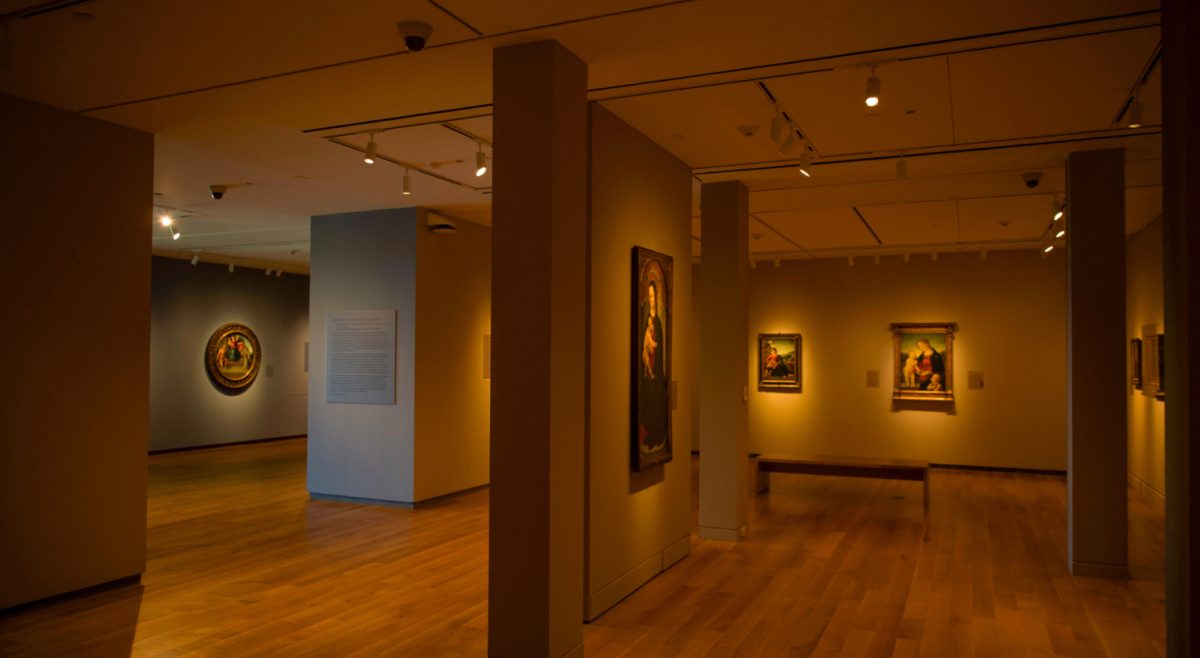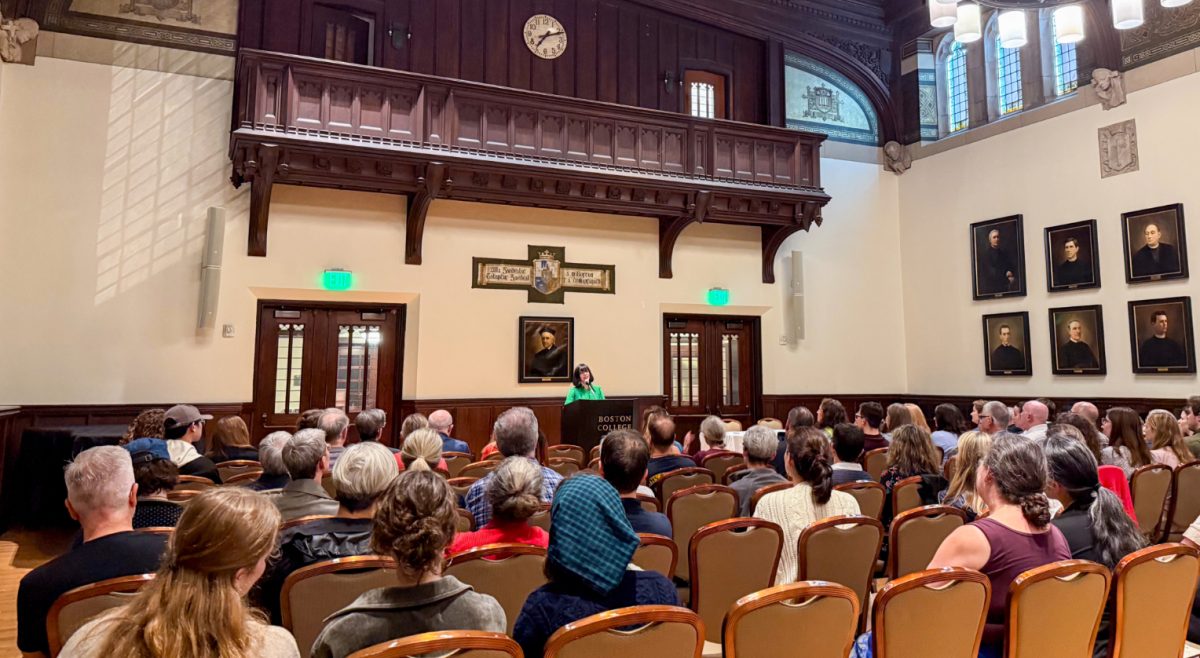Standing outside Gasson Hall, it would be difficult to tell how popular an event like this would be. The weather outside was cold and dreary, as freezing rain misted and gusted through the air. The only hints at any sort of event inside the building were a few chatting friends and a small children’s choir, practicing their line up.
Entering the room, however, showed something else entirely.
Gasson 100 was packed with close to 200 people—filling the multitude of available chairs and spilling onto the walls and balcony space. The energy in the room was tangible. Families and friends had come together for this evening’s event, and their excitement and anticipation electrified the air. Rapid and eager applause signaled the entrance of the the children’s and adult’s choir, along with Boston College’s Astaza Middle Eastern Ensemble.
The event was introduced by assistant professor Ann Lucas. The performance by the Astaza Ensemble and choirs under musical direction of professor Nizar Fares and, later, the performance by Charbel Rouhana, was made possible through the generosity of the Lebanese and greater Arabic community here in the Boston area.
After this brief introduction, it was time for the music to begin. The program was divided in two. The first half was called Mashreqiyat, Part 1: Music of the Levant. During this section, the ensemble and choirs performed various pieces coming straight from a historical geographical area in the Middle East called the Levant. This first part was composed of various arranged pieces and improvisations, featuring solo performances by musicians and by singers.
It began with a taqtūqa—a genre of music which is focused most heavily on light singing in Arabic—called “Habāyebnā.” The song began with a hollow beating percussive sound, complemented by plucking strings on the focal instrument of the night: the oud. An oud is a pear-shaped guitar-like stringed instrument with a short neck. As the instrumentation took shape, the sound was filled in by vocals from the children and adult choirs. Violins and cellos rushed in as the music swelled, and Alma Richeh, a singer from the adult choir and the director of the children’s choir, began to sing. The words of this song, and of every song performed over the course of the evening, were in Arabic. But, even without an understanding of the language, the music and vocals were stunningly beautiful. The first song set the mood for this beautiful and moving event right from the start. The name, “Habāyebnā,” translates to “Surrounded by Beloved Ones.” The lyrics, which are transliterated into phonetic Arabic and translated into written English on the program, read like heartfelt poetry. “Surrounded by the loved ones – oh a breeze is upon us / Love has swayed us into paths, over which we are joined together.”
The rest of this first act only got better and better. Solo performances by master oud players in the Ensemble garnered cheers from the audience and even rounds of applause from their fellow musicians.
Finally, the time came for the performances by Charbel Rouhana. Rouhana is a master-level Lebanese oud player. Fares, the director of the ensemble, studied under Rouhana when learning the oud.
Rouhana arose from the crowd and walked to the front of the room. Garbed in a black suit, the eyes of a master musician poked out from behind his glasses, framed by salt-and-pepper hair and beard. As he took his seat in a raised chair at the center of the performance space, he picked up his oud as he had no doubt done thousands upon thousands of times before.
He began with a song called a sama’i. A sama’i is a vocal piece of music of Turkish Ottoman origin. This sama’i was composed by Rouhana himself, and featured a section of oud improvisation nestled in the middle. As he began to play, making up the notes as he went along, it dawned on the audience that this improvisation, made up on the spot, rivaled the quality of the composed pieces that had been played for an hour previously.
In Rouhana’s hands, the oud came alive in a way it never had before. The plucking notes on the strings began to sound like they were coming from two instruments at once— a classical Spanish guitar and a piano. The fine notes like guitar strings complemented the deep bassy notes like piano tones. As Rouhana drew the piece to a close, the audience erupted in applause.
But this was only the beginning. Over the remainder of the event, Rouhana managed to amaze the crowd time and time again—but the best had been saved for last.
Often, at the end of a large or long meal, people will take coffee as a final course of sorts. In the same way that one might finish an enjoyable event with a cup of coffee, Rouhana, along with Fares’s direction of the ensemble, finished off the lovely event with a performance of another taqtūqa called “‘Ahwi,” or “Coffee.” This coffee however, was anything but bitter.
Featuring a lovely vocal performance by Nano Raies, a member of the adult choir, the audience joined in on the choruses to send off the night together. A fast and lively song, the lyrics of “Coffee” are wry but hopeful and fun. “You said, you’re coming to visit / So I put the kettle on the stove / And I waited until my nosy neighbor knew all my secrets.” The woman waiting for her love to return to her has revealed her actions to the nosy neighbor watching the coffee being made. The song continues “The coffee got cold, the neighbors fell asleep, and so did the night / Over the pillows of stars my eyes see horses crossing over / Bringing me news from you.” As Raies voice sent these lyrics soaring over the heads of the audience, the members of the crowd who knew the words added their voices to the swelling music provided by the ensemble. Rouhana’s oud managed to retain its place as star of the show, right alongside Raies’ voice, resulting in an incredible piece that finished off an incredible evening.
Featured Image by Celine Lim / Heights Staff

